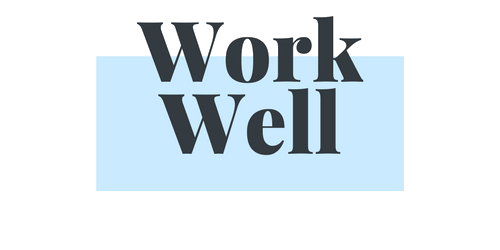Alyssa Tilden works at BiblioCommons, a tech company that builds software for public libraries like the Austin Public Library, the Calgary Public Library and the Boston Public Library.
Follow Alyssa on LinkedIn. Sign up to get new Work Well articles.
Can you tell me a little about your role as Manager of People and Culture at BiblioCommons?
I was the first People + Culture hire here at BiblioCommons, meaning that my role encompasses a wide range of initiatives. In a nutshell, I focus my long-term goals around recruitment, employee engagement, and how we brand ourselves as an employer. Most of our HR initiatives tend to fall into these categories, whether it’s reviewing our benefits package, strategizing on new hiring initiatives and events, or defining salary bands and performance reviews, to name a few. The one thread of steel in each of these projects is a unifying objective to improve the all-round employee experience. In addition to this, I ensure our policies are up to date and compliant with legislation.
BiblioCommons has been around for 10 years, and during this time has organically developed a unique workplace culture. That said, with the creation of a more formalized HR department, I have taken on the role of bringing structure and definition to our company culture – to identify our core values and nourish them in order to foster and strengthen this culture as we grow in size.
What does culture mean at BiblioCommons?
Culture to us means creating a sustainable work environment that serves both our product and our employees long-term. Our main product, BiblioCore, is celebrating its 10-year anniversary this summer and its continued success is truly a result of the dedicated employees we have on board.
At BiblioCommons, our values have developed largely due to factors surrounding our product, our customers, and our collective vision for the future of public libraries. Though formalizing the notion of “company culture” at BiblioCommons is new in practice, it has always existed organically, living in key commonalities across all departments and throughout our leadership. These core values are defined by collaboration, dedication, and thoughtfulness, carried out by a team that is responsive, proactive, and patient, but that also cares about work-life balance and having fun.
How do you ensure that BiblioCommons’ core values are being reflected in the day-to-day work of its employees?
At BiblioCommons, we feel that it’s important to create an environment that fosters the values that allow both our employees and product to thrive. We’re on a mission to build software that transforms the public library’s online services and creating a product that sits at the forefront of this industry requires constant innovation and creativity. As such, we work to foster an environment that allows our employees to cultivate these skills, whether it be by opening channels for feedback at all levels of the company or by hosting company-wide activities like hackathons to keep creativity levels high.
Our products also harness the strengths of public libraries by bringing them together on a shared platform, something that is mirrored in our organization by our focus on the bigger picture of what we’re trying to achieve as a team rather than as individuals. A company’s mission can easily get lost by narrowly focusing on day-to-day details, so we try to have frequent touch points between our leadership team and employees to reiterate the “why” of our products and organization.
Is there a secret to keeping top performers on board for the long haul?
Our recipe for long term retention at BiblioCommons is to maintain open dialogue with each individual employee; to keep them challenged, offer them opportunities for growth, and always be transparent.
Open dialogue is important for several reasons. For one, each employee has different goals, capabilities, and challenges to overcome. Some employees will be much more vocal whereas others will require more prodding to identify the exact professional plan that suits them. As such, it’s important to cater professional development plans or career paths to each individual employee.
Top performers are rarely complacent so it’s important to keep them challenged and offer them opportunities for growth. Again, transparency is key here to understanding both their capacity to be challenged and the way they want to be challenged. Some individuals enjoy the challenge of growing into a leadership role, whereas others are looking for broader and more complex responsibilities. We discuss the many different paths that challenges can take, and work with top performers to select the one that best matches their professional growth goals.
What do you think the future of culture will look like? What trends will have the biggest impact in the near future?
Similarly to how we are moving towards a customer driven economy, workplaces will continue to make that same transition. Just as individuals can rate a hotel or restaurant, employees are empowered to provide similar feedback to their employers. Based on this transition continuing, I think the future of culture will be heavily dependent on people analytics and gear towards the individuals that make up your organization uniquely.
Additionally, due to an increasingly competitive landscape to retain and recruit top talent, HR must continue to think even more strategically. Long term this could mean creating more complex compensation packages that further reflect your overall company culture and gear towards retention, wellness outcomes and work-life balance initiatives supporting long term commitment.
Want more articles just like this one? Sign up here to get them delivered right to you.






0 comments